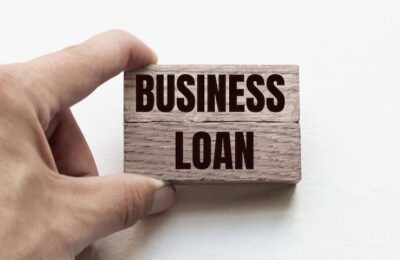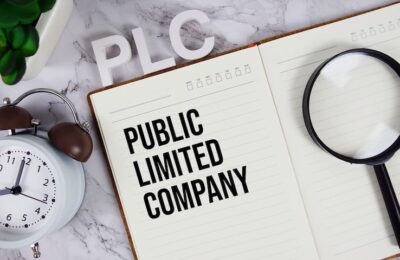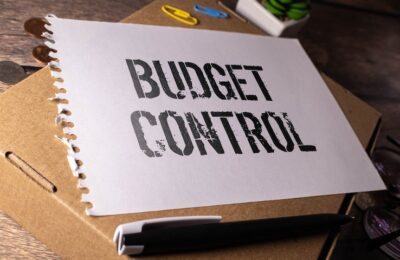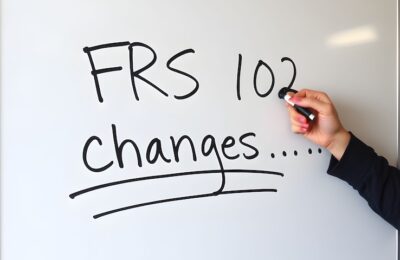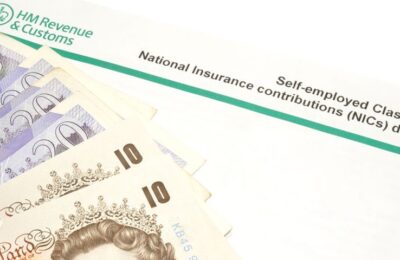If you’re self-employed, it’s important to claim all the expenses you’re entitled to. Deducting the cost of allowable items from your pre-tax profits can help to reduce your Income Tax bill. Unfortunately, many sole traders fall into the trap of claiming ‘disallowable expenses’ in their tax returns. These are items that HMRC doesn’t consider to be legitimate business costs.
What are allowable and disallowable expenses?
Allowable expenses are allowable business purchases that can be deducted from your pre-tax profits. They include things like office costs, marketing, training and certain types of expenditure on travel or clothing. You can find out more about these here.
Disallowable expenses, on the other hand, are costs that can’t be deducted from your pre-tax profits. It’s also worth noting that if you buy things that can be used for both business and personal reasons, you can’t claim the whole expense. Examples might include things like your mobile phone usage, or a broadband package you use for business and personal reasons. In such cases, you may only be able to claim a proportion of the cost as an allowable expense.
Why is it important not to claim disallowable expenses?
It’s very important not to claim disallowable expenses on your Self-Assessment Tax Return. If you do and HMRC find out, you could face penalties and unexpected bills.
What are commonly claimed disallowable expenses?
As accountants to many self-employed people, we’ve noticed that there are common disallowable expenses that people believe they can claim. Below are some of the wrongly claimed items we often encounter.
1. Client entertainment
If you take clients out for a meal or drinks, it can be a good way to win business. Unfortunately, it also counts as a disallowable expense. Client entertainment has to come out of your own pocket. That said, you may be able to claim for certain types of staff entertainment, such as a Christmas party. You’ll just need to pay yourself for any clients you invite along.
2. Clothing
Clothing can either be an allowable or a disallowable expense, so it pays to be careful. If you buy items that are uniform or worn only for work, then the expense is likely to be allowable. So, if you buy steel toed boots to wear on a jobsite, they’re an allowable expense. If you buy a smart suit to wear when meeting clients, I’m afraid that’s personal expenditure.
3. Home office costs
If you work from home, you have to be careful what you claim for. While you may be able to claim a proportion of things like heating, electricity, mortagage interest, rent, internet and phone use, you need to use a reasonable method for dividing your costs between business and personal expenditure. A good accountant will be able to advise you, but many people opt for a much easier flat rate scheme called ‘simplified expenses’.
4. Personal travel costs
You need to be very careful which travel costs you claim – many are disallowable expenses. Legitimate claims can be made for business travel, including fares and fuel. However, you can’t claim for your regular commute and you absolutely mustn’t claim for holidays taken under the guise of ‘business trips’.
5. Fines and penalties
Whether it’s a speeding ticket, parking fine or even a late-filing penalty from HMRC, fines and penalties are disallowable expenses. These are all considered to be your personal responsibility.
6. Food and drink
This can be another grey area, and one where it’s wise to get professional advice from an accountant. You can’t claim for meals that are part of your normal working routine, so your lunch isn’t an allowable expense. Nor can you claim for your coffee if you spend the morning working in a café. However, if you need to grab a sandwich on the way to a client meeting, it may be allowable if it’s not part of your normal routine.
7. Glasses
If you need glasses, an eye test is a disallowable expense against Income Tax. Theoretically, if you wore a pair of prescribed glasses only for work, that would be allowable. But it won’t be easy to prove to the taxman! You can find out more in our article, Are glasses tax deductible?
How to keep tabs on allowable and disallowable expenses
If you want to stay on the right side of HMRC, it’s vital to keep detailed records of your expenditure. This can be made a lot simpler if you use cloud accounting software like FreeAgent or Xero. However, to make sure accidentally claimed disallowable expenses don’t land you in hot water, it’s crucial to use a good accountant to prepare and submit your Self-Assessment Tax Return. At THP, we’d be very happy to help you do this and make sure you claim all the allowable expenses you’re entitled to.
About Karen Jones
Having worked for one of the world’s largest accountancy firms, Karen Jones uses her tax knowledge and skills to help clients obtain substantial reductions to their tax liabilities.
With an expanding portfolio of tax clients, Karen enjoys the variety her work brings her and particularly likes working with new businesses and people. With a growing number of tax clients, she frequently faces a variety of challenges and relishes the experience she gains as she solves them.
Karen likes the THP ethos: “I like the way the team has a professional, but friendly and down-to-earth approach – it creates a productive atmosphere that benefits everyone.”
Karen’s specialist skills:
- Personal Taxation
- Tax Efficient Planning
- Trust Administration



